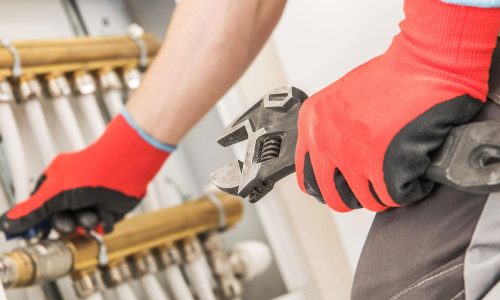14
Jun 2023
Underfloor Heating Environmental Benefits
As our understanding of how human activity affects the environment improves, it’s critical to consider how we might reduce our carbon footprint. Underfloor heating is one method of achieving this. In this article, we’ll look at the advantages of underfloor heating for the environment and how it
can lower a house’s carbon footprint.
Increased Energy Efficiency
Underfloor heating’s environmental advantages include energy efficiency. Because underfloor heating evenly distributes heat throughout a room, it uses less energy to keep a room at a comfortable temperature than conventional heating systems that rely on radiators. This improved efficiency reduces energy use, lowering carbon emissions and lessening your home’s environmental impact.


Reduced Fossil Fuel Dependence
Reduced reliance on fossil fuels is an additional advantage of underfloor heating for the environment. Oil and gas, both non-renewable fuels that increase greenhouse gas emissions, are used in many conventional heating systems. In contrast, renewable energy sources, such as solar or wind power, can power underfloor heating. These sources are more environmentally friendly and long-lasting. This decreased reliance on fossil fuels lowers carbon emissions and lessens your home’s environmental impact.
No Heat Wasted
Since hot air rises and escapes through inadequately insulated walls and roofs, traditional heating systems lose heat. In contrast, underfloor heating evenly disperses heat throughout a space, minimising energy and heat loss. Because fewer resources are needed to heat your home, reduced energy consumption results in a smaller carbon footprint.


Less Dangerous Chemical Use
Finally, using less harmful chemicals in your home is possible with underfloor heating. The components of many conventional heating systems are shielded from corrosion by antifreeze. On the other hand, underfloor heating systems don’t need toxic substances, making them a safer and greener alternative.
Improved Air Quality
Indoor air quality has several advantages for human health and the environment, which can be improved by underfloor heating. For example, dust and allergens produced by conventional heating systems can exacerbate respiratory conditions and worsen air pollution. By lowering the amount of dust and allergens in the air, underfloor heating, on the other hand, promotes a cleaner and healthier environment.


Greater Durability
Underfloor heating systems are also more durable than conventional heating systems. Because of this, they need less upkeep and replacement, creating less waste and ensuring a more sustainable future.
For homeowners wishing to lessen their carbon footprint and increase their home’s energy efficiency, underfloor heating is a great option. Underfloor heating has many advantages for the environment, including operating at lower temperatures, using renewable energy sources, enhancing indoor air quality, and lasting for a long time.
Don’t hesitate to get in touch with JCW Underfloor Heating if you have any queries or worries regarding underfloor heating or would like to find out more about how it may improve your house. Their team of industry professionals can provide you insightful counsel and direct you as you choose the best underfloor heating system for your residence. You may take advantage of the many advantages of underfloor heating and help create a more sustainable future with their high-quality products and knowledge.
